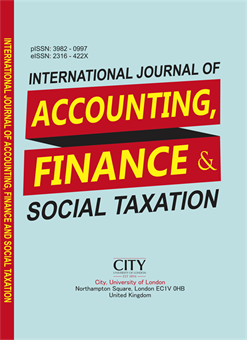INTERNATIONAL JOURNAL OF ACCOUNTING, FINANCE AND SOCIAL TAXATION (IJAFST)
Systematic Literature Review of Advancements in Corporate Bankruptcy Prediction
E-ISSN: 2316-422X
P-ISSN: 3982-0997
DOI: https://iigdpublishers.com/article/381
This systematic review examines the evolution of corporate bankruptcy prediction models, synthesizing insights from a wide array of high-quality studies. Statistical methods, notably logit analysis and discriminant analysis, are predominant in bankruptcy prediction, but there is a discernible rise in the adoption of artificial intelligence techniques. Accounting-based methodologies, particularly accrual-based approaches, are prevalent, emphasizing the importance of financial ratios in assessing companies' financial health. By elucidating key trends and methodologies, this review aims to inform future research and enhance the effectiveness of bankruptcy prediction models in corporate finance.
Mahmoud Elsayed Mahmoud & Taufiq Arifin
Al Sharawi, H. H. M. (2020). Earnings versus cash flows in predicting future cash flows: Evidence from Egypt and KSA. Alexandria Journal of Accounting Research, First Issue, January 2021,
Vol. 5.
Al-Kassar, T. (2019). The use of accounting and financial ratios to predict failure: The case of Jordan. Academy of Accounting and Financial Studies Journal, 23(3), 385. doi:1528-2635-23-3-385
Allaj, E., & Sanfelici, S. (2023). Early warning systems for identifying financial instability.
International Journal of Forecasting, 39(4), 1777–1803.
Anand, A., Baesens, B., & Vanpée, R. (2023). Sovereign credit risk modeling using machine learning: A novel approach to sovereign credit risk incorporating private sector and sustainability risks. Journal of Credit Risk, 19(1), 105–154.
Beaver, W. H. (2005). Have financial statements become less informative? Evidence from the ability of financial ratios to predict bankruptcy. Review of Accounting Studies, 10, 93-122.
https://doi.org/10.1007/s11142-005-1591-3
